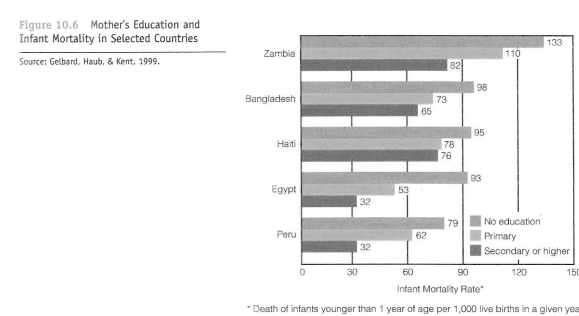Exam 10: Stratification and Global Inequality
Exam 1: Sociology: An Introduction175 Questions
Exam 2: The Tools of Sociology167 Questions
Exam 3: Culture155 Questions
Exam 4: Societies and Nations172 Questions
Exam 5: Socialization167 Questions
Exam 6: Interaction in Groups163 Questions
Exam 7: Sexuality150 Questions
Exam 8: Deviance and Social Control179 Questions
Exam 9: Collective Behavior, Social Movements, and Mass Publics157 Questions
Exam 10: Stratification and Global Inequality164 Questions
Exam 11: Inequalities of Social Class163 Questions
Exam 12: Inequalities of Race and Ethnicity184 Questions
Exam 13: Inequalities of Gender113 Questions
Exam 14: Inequalities of Youth and Age112 Questions
Exam 15: The Family155 Questions
Exam 16: Religion129 Questions
Exam 17: Education121 Questions
Exam 18: Economic Institutions146 Questions
Exam 19: Politics and Political Institutions166 Questions
Exam 20: Health and Medicine73 Questions
Exam 21: Population, Urbanization and the Environment157 Questions
Exam 22: Global Social Change182 Questions
Select questions type
Which of the following terms was used by Karl Marx in referring to the class of wage earners in a capitalist society?
(Multiple Choice)
4.7/5  (35)
(35)
What ratio of the world's population lives in extreme poverty?
(Multiple Choice)
4.8/5  (42)
(42)
The movement of an individual or group from one location or community to another is termed:
(Multiple Choice)
4.8/5  (30)
(30)
Those societies that have attempted to implement the ideas of Marx on a large scale:
(Multiple Choice)
4.9/5  (33)
(33)
While China and India have cut their poverty rate virtually in half, areas in sub-Saharan Africa most in need of reducing poverty rates have not made any real progress toward reducing poverty or improving quality of life in recent years.
(True/False)
4.7/5  (38)
(38)
Which of the following is NOT an element of Marx's theory of stratification?
(Multiple Choice)
4.7/5  (41)
(41)
 -As shown in the figure below, which of the following countries has the lowest infant mortality rate?
-As shown in the figure below, which of the following countries has the lowest infant mortality rate?
(Multiple Choice)
4.9/5  (39)
(39)
Marx believed that differences among the various classes in a capitalist society could eventually be settled peacefully.
(True/False)
4.7/5  (43)
(43)
The increase in blue-collar manufacturing work in the third world has been accompanied by an increase in unemployment in certain regions of the United States.
(True/False)
4.7/5  (42)
(42)
More than 20% of the United States work force is engaged in agriculture production.
(True/False)
4.7/5  (33)
(33)
Which of the following effects changes in stratification systems at both the local and global levels?
(Multiple Choice)
4.8/5  (32)
(32)
A group's shared awareness of its objective situation as a class is termed:
(Multiple Choice)
4.9/5  (27)
(27)
The opportunities that people will have or be denied throughout life are referred to as their:
(Multiple Choice)
4.7/5  (33)
(33)
In his analysis of the French peasants, Marx doubted that they could become a subjective class because:
(Multiple Choice)
4.9/5  (40)
(40)
Marx argued that in a capitalist society there would always be a "reserve army." By this he meant that
(Multiple Choice)
4.9/5  (44)
(44)
War, invasion and conquest are major contributors to global inequality.
(True/False)
4.9/5  (34)
(34)
In Marx's analysis of capitalism, which of the following is the largest class?
(Multiple Choice)
4.8/5  (32)
(32)
Describe the interactionist approach to social stratification and how it relates to conflict theory and functionalist explanations.
(Essay)
4.9/5  (34)
(34)
Showing 61 - 80 of 164
Filters
- Essay(0)
- Multiple Choice(0)
- Short Answer(0)
- True False(0)
- Matching(0)